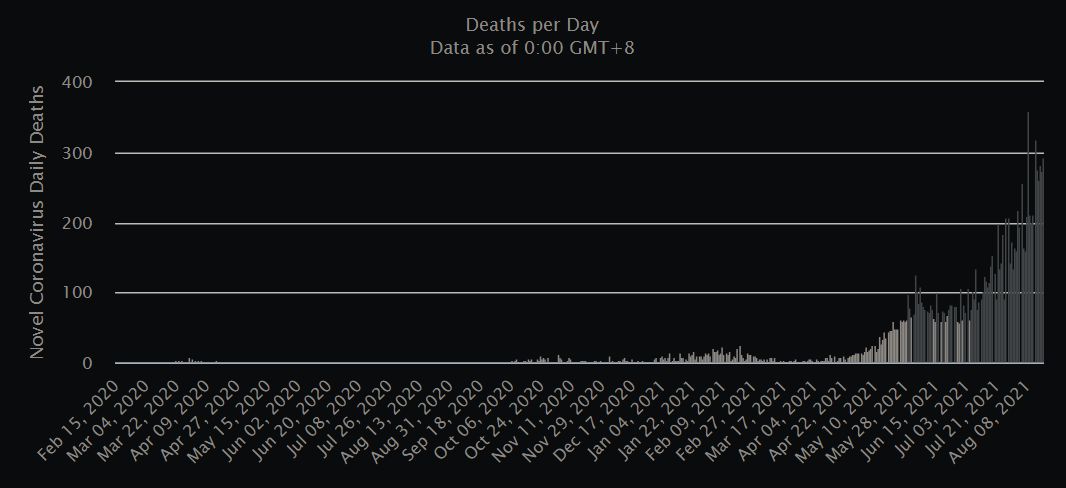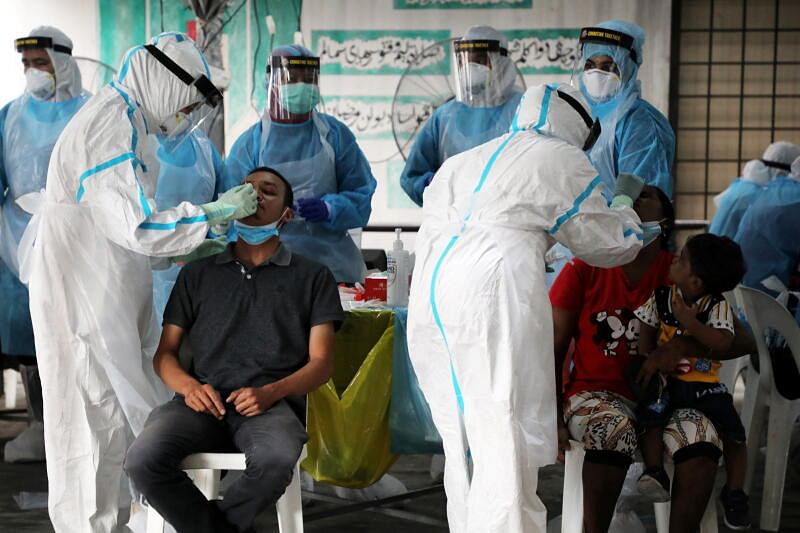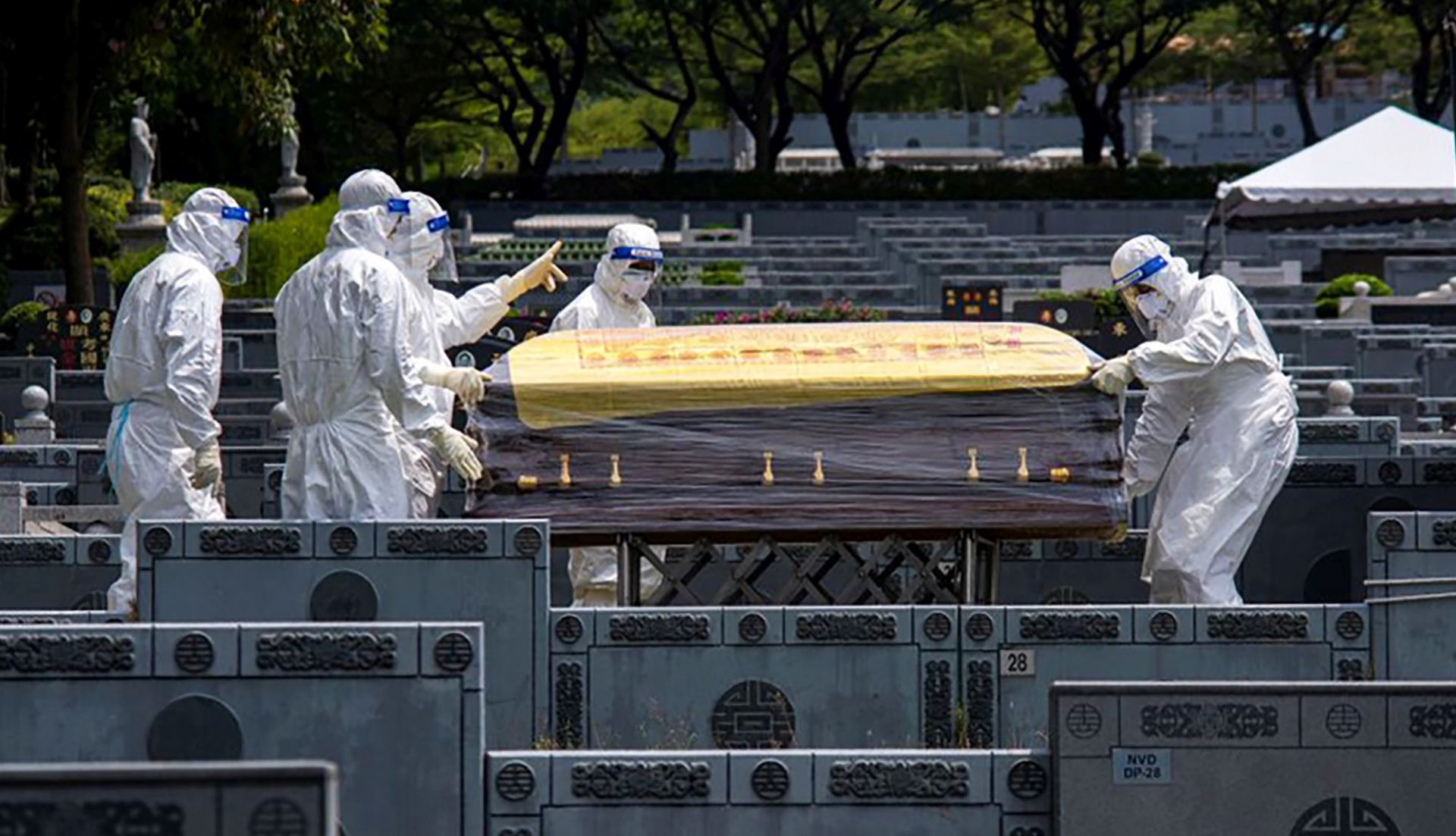Despite the success of the ongoing effort to get large numbers of the population immunised, Malaysia’s Covid metrics all remain stubbornly high.
When the country entered its latest period of lockdown (or ‘half-baked lockdown’ if you prefer) on June 1, the primary Covid data points stood like this:
- Daily new cases, seven-day average: 7,105
- Total cases: 579,462
- Daily deaths, seven-day average: 71
- Total deaths: 2,867
- Current active cases: 80,474
- ICU cases, seven-day average: 821
- Vaccination rate: 7.06%
Now, however, despite a soaring vaccination rate and over two months of something resembling a lockdown, all of these metrics are considerably worse:
- Daily new cases, seven-day average: 20,643
- Total cases: 1,444,270
- Daily deaths, seven-day average: 274
- Total deaths: 13,077
- Current active cases: 252,157
- ICU cases, seven-day average: 1,069
- Vaccination rate: 33.8%
Understandably, a sense of despair is beginning to arise in some people. Why is nothing improving? Should we not be seeing some impact from the rapid increase in vaccinations?
“Did Malaysia buy only saline solution from the vaccine companies by mistake?” one social media poster asked sarcastically.

AN EXPLAINER
Whether you feel despair or hope depends largely on what data you look at and how you interpret it.
Daily new cases can almost be entirely disregarded in this exercise, since we know that Covid testing in Malaysia has soared over the last two to three months. New case trends and case positivity rate trends are really only valuable in this context when all factors remain mostly the same (scale of testing, who is being tested, etc.) – if you ramp up testing considerably and/or start testing in areas of known outbreaks, both your new case counts and positivity rates are likely going to increase. Malaysia is currently performing about 150,000 tests per day, though the daily number has not been consistent by any means.

More troubling are the number of ICU cases and deaths, both of which remain considerably higher than they were three months ago. But even here, signs are emerging – echoing what we’ve seen in other countries – that the vaccines are working and that the disease is increasingly finding unvaccinated people in which to manifest its worst results. Those who are fully vaccinated are very unlikely to get seriously ill, even if they manage to contract the coronavirus.
Data just released by Health Director General Dr Noor Hisham confirms that an analysis of the first 12,993 Covid deaths in Malaysia, only four were fully vaccinated. (Of course, a few thousand of those deaths occurred before the vaccines were even available and being widely administered, and those are counted, too.)
Also in that total, 80 deaths were in people who were only partially vaccinated. That means that of 12,993 deaths, 12,909 – or 99.37% – occurred in unvaccinated people.
ICU cases are also starting to plateau and even trend downward, it seems, which hopefully will continue and accelerate in that direction in the coming weeks.
TIMING IS EVERYTHING
When looking at Covid data, it’s important to remember that there is a lag time between an initial infection and any possible symptoms or serious illness arising.
Also, once a person receives the second dose of a vaccine, they are not medically considered as fully vaccinated until 14 or 15 days later (or 28 days later in the single-dose case of Johnson & Johnson’s vaccine). There is nothing magical about these timetables; they’re not even strictly fixed from person to person. It just takes time for the body to ramp up production of the antibodies that ward off serious effects from the virus, and for most people, the maximum level of antibodies is reached around two weeks following the second dose. Governments, however, invariably put these people into the ‘fully vaccinated’ category the moment they get their final jab.
We live in an era of instant gratification, but viruses and vaccines operate to a different timetable, supremely unmoved by our own ‘need for speed.’
Bottom line: Things are working as they should, we just have to temper our anxiety and have a little more patience. The coming weeks should bring us a much-desired sense of relief as we see the crucial Covid metrics begin to start trending in a better direction.
"ExpatGo welcomes and encourages comments, input, and divergent opinions. However, we kindly request that you use suitable language in your comments, and refrain from any sort of personal attack, hate speech, or disparaging rhetoric. Comments not in line with this are subject to removal from the site. "





















